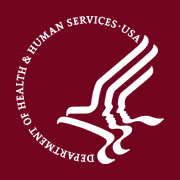MACRA Rule Revolutionizes the US Healthcare Payment System
The Medicare program has had a variety of different strategies and reforms to bring the healthcare payment system toward one that is geared toward value-based, quality care.

- Earlier this week, the Centers for Medicare & Medicaid Services (CMS) released a proposed rulemaking regarding the Medicare Access and CHIP Reauthorization Act of 2015 (MACRA). The MACRA legislation has made a significant difference to the healthcare payment system around the country.

At this point in time, the Medicare program has had a variety of different strategies and reforms to bring the healthcare payment system toward one that is geared toward value-based, quality care. The MACRA legislation would bring all of these different strategies under one roof through a more streamlined approach.
There are two frameworks that MACRA will operate through. These frameworks include the Merit-based Incentive Payment System (MIPS) and the Advanced Alternative Payment Models (APMs). The Department of Health and Human Services (HHS) further discussed in a press release the proposed rule that will advance the healthcare payment system within the Medicare program.
“The legislation Congress passed a little over a year ago was a milestone in our efforts to advance a health care system that rewards better care, smarter spending, and healthier people,” HHS Secretary Sylvia M. Burwell said in the release. “We have more work to do, but we are committed to implementing this important legislation and creating a health care system that works better for doctors, patients, and taxpayers alike. We look forward to listening and learning from the public on our proposal for how to advance that goal.”
The majority of healthcare providers treating Medicare beneficiaries will operate through the Quality Payment Program via MIPS. Both MIPS and MACRA build upon the Affordable Care Act and its focus on value-based reimbursement. However, medical providers who participate in advanced alternative payment models could be exempt from payment reporting through MIPS.
Medicare payments will more closely align with the cost and quality of patient care seen throughout physician practices around the United States. The many different Medicare initiatives that providers participate in today will come under one umbrella through a more simplified approach within the MACRA legislation.
The programs providers participate in vary from Physician Quality Reporting System and the Value Modifier Program to the Medicare Electronic Health Record (EHR) Incentive Program, the Comprehensive Primary Care Initiative, and the Medicare Shared Savings Program. These value-based programs will be positioned into one general framework for Medicare reimbursement.
The healthcare trade Association AMGA released a statement regarding the new proposed rule associated with MACRA. AMGA Is pleased with the work CMS is accomplishing to evolve Medicare reimbursement and the healthcare payment system toward one based on quality and value instead of volume such as in the fee-for-service payment model.
“We understand the rulemaking process is part of an ongoing conversation with CMS,” Donald W. Fisher, Ph.D., CAE, AMGA’s President and CEO, said in a public statement. “Based on a very preliminary look, CMS appears to have recognized the need for flexibility as providers move toward a risk-based payment system. However, we remain concerned that qualifying as an APM remains challenging at best, even for AMGA members, many of whom are very experienced with risk-based payment models. We look forward to analyzing this rule and engaging with the agency to refine this proposal before it is finalized.”
The AMGA statement also mentioned one benefit from the proposed rule, which was essentially the ability for providers to switch between the alternative payment models and the Merit-based Incentive Payment System.
The trade association has created the MACRA and Risk Initiative to help better prepare providers for meeting the requirements of the new proposed rule. Another important aspect of the proposed rule includes the development of the Advancing Care Information program, which moves forward in eliminating meaningful use incentives and putting forward a new streamlined approach for patient-centric care and health information exchange.
The EHR Incentive Programs And meaningful use requirements will no longer be applicable among physician practices treating Medicare beneficiaries starting in January 2017 but will continue to be used among hospitals. The Office of the National Coordinator for Health IT along with CMS are looking to move beyond meaningful use and truly tap into the many opportunities that health information technology brings to the healthcare industry.
In particular, the federal agencies are seeking to improve interoperability and health information exchange between multiple medical facilities across the country. Additionally, the new proposed rule is meant to reduce burden on physician practices as well as simplify the regulations surrounding the use of electronic technology.
 “We are working with the medical community to advance our collective vision for Medicare payment reform,” Dr. Patrick Conway, CMS Acting Principal Deputy Administrator and Chief Medical Officer, said in a public statement.
“We are working with the medical community to advance our collective vision for Medicare payment reform,” Dr. Patrick Conway, CMS Acting Principal Deputy Administrator and Chief Medical Officer, said in a public statement.
“By proposing a flexible, rather than a one-size-fits-all program, we are attempting to reflect how doctors and other clinicians deliver care and give them the opportunity to participate in a way that is best for them, their practice, and their patients. Reducing burden and improving how we measure performance supports clinicians in doing what they do best – caring for their patients.”
The federal government is likely to continue renovating and updating regulations in order to reform the healthcare payment system throughout the United States. Healthcare payers and providers would be wise to pay attention and adhere to the many new regulations affecting reimbursement within the Medicare and Medicaid programs.
